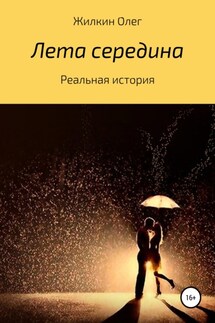Bleak House - страница 69
'Our dear little old woman is such a capital old woman,' Richard would say, coming up to meet me in the garden early, with his pleasant laugh and perhaps the least tinge of a blush, 'that I can't get on without her. Before I begin my harum-scarum day – grinding away at those books and instruments, and then galloping up hill and down dale, all the country round, like a highwayman – it does me so much good to come and have a steady walk with our comfortable friend, that here I am again!'
'You know, Dame Durden, dear,' Ada would say at night, with her head upon my shoulder, and the firelight shining in her thoughtful eyes, 'I don't want to talk when we come up-stairs here. Only to sit a little while, thinking, with your dear face for company; and to hear the wind, and remember the poor sailors at sea—'
Ah! Perhaps Richard was going to be a sailor. We had talked it over very often, now, and there was some talk of gratifying the inclination of his childhood for the sea. Mr. Jarndyce had written to a relation of the family, a great Sir Leicester Dedlock, for his interest in Richard's favour, generally; and Sir Leicester had replied in a gracious manner, 'that he would be happy to advance the prospects of the young gentleman if it should ever prove to be within his power, which was not at all probable – and that my Lady sent her compliments to the young gentleman (to whom she perfectly remembered that she was allied by remote consanguinity), and trusted that he would ever do his duty in any honourable profession to which he might devote himself.'
'So I apprehend it's pretty clear,' said Richard to me, 'that I shall have to work my own way. Never mind! Plenty of people have had to do that before now, and have done it. I only wish I had the command of a clipping privateer, to begin with, and could carry off the Chancellor and keep him on short allowance until he gave judgment in our cause. He'd find himself growing thin, if he didn't look sharp!'
With a buoyancy and hopefulness and a gaiety that hardly ever flagged, Richard had a carelessness in his character that quite perplexed me – principally because he mistook it, in such a very odd way, for prudence. It entered into all his calculations about money, in a singular manner, which I don't think I can better explain than by reverting for a moment to our loan to Mr. Skimpole.
Mr. Jarndyce had ascertained the amount, either from Mr. Skimpole himself or from Coavinses, and had placed the money in my hands with instructions to me to retain my own part of it and hand the rest to Richard. The number of little acts of thoughtless expenditure which Richard justified by the recovery of his ten pounds, and the number of times he talked to me as if he had saved or realised that amount, would form a sum in simple addition.
'My prudent Mother Hubbard, why not?' he said to me, when he wanted, without the least consideration, to bestow five pounds on the brickmaker. 'I made ten pounds, clear, out of Coavinses' business.'
'How was that?' said I.
'Why, I got rid of ten pounds which I was quite content to get rid of, and never expected to see any more. You don't deny that?'
'No,' said I.
'Very well! then I came into possession of ten pounds—'
'The same ten pounds,' I hinted.
'That has nothing to do with it!' returned Richard. 'I have got ten pounds more than I expected to have, and consequently I can afford to spend it without being particular.'






